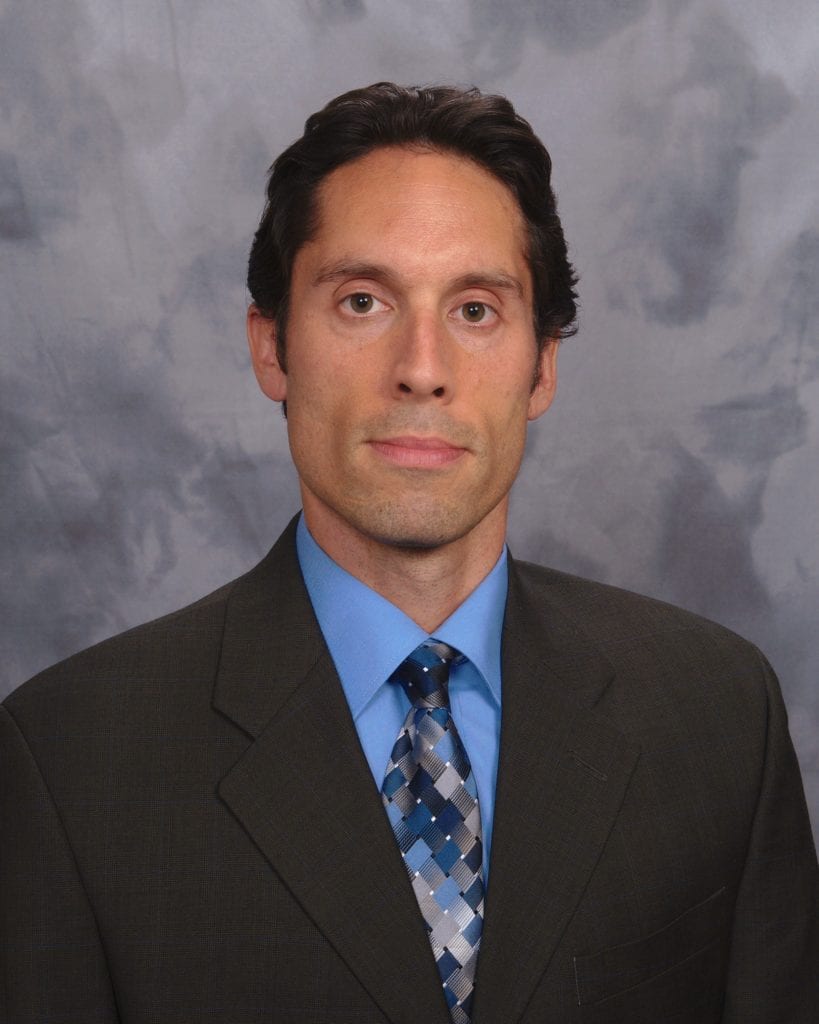The B.A. in Psychology program at The Chicago School’s Chicago Campus offers undergraduate psychology students, who are serious about pursuing a career in the field, the unique opportunity with a graduate-level experience.
Gregory Benson-Flórez, Ph.D., associate chair of the program, believes the developmental psychology course offered within the curriculum is a prime example of this.

“Although this is a course usually offered in most B.A. Psychology programs, ours is a bit more advanced than what students may encounter in typical introductory courses. Usually, it is a 100- or 200-level course, but ours it is at the 300-level,” he says.
The course covers a wide range of important and interesting topics, including how biological, cultural, and individual factors work together to shape a person’s psychological development.
“We’re really starting from prenatal development to the end of the life cycle and everything in between,” says Dr. Benson-Flórez, adding that oftentimes this type, of course, focuses on the intact life cycle. This class focuses on the expanded family life cycle, incorporating blended families, LGBTQ individuals, and families, immigration or recent immigrant families, and people of color, to really include a diverse, inclusive perspective. “It’s a lot of content and information to cover. But we’re examining the biological perspective of development while also exploring the environmental and nurture perspective that accounts for psychosocial factors and issues.”
The basic theoretical perspectives often found in a developmental psychology course will still be included. However, the course was designed to go beyond traditional undergraduate courses by combining advanced theoretical concepts with The Chicago School’s commitment to diversity and inclusion. This means looking at issues through a specific socio-cultural context that incorporates important psychosocial factors such as ethnicity, community, religion, spirituality, socioeconomic status, language, and gender-related issues.
“Perhaps these are covered in general developmental psychology courses at the bachelor’s level,” Dr. Benson-Flórez says. “But I think that in this course you will get more because it aligns so much with the community and diversity focus of The Chicago School in general.”
Because the course will be taken by undergraduate students, Dr. Benson-Flórez also hopes to spend additional time discussing the emerging adulthood stage (ages 18 to 30) of development, which many of the students will be living through.
“We want the content of the course to not only align with The Chicago School’s mission but also to be relevant to everyone’s personal experience as human beings,” he says.
In addition to the curriculum, students in the course will benefit from smaller class sizes, allowing them to form more personal contacts and professional relationships that can be tremendously helpful as they begin building their careers. This is a consistent theme with courses throughout the B.A. Psychology program at The Chicago School, further setting it apart from similar programs found at other institutions.
“I think back to some of the experiences in my bachelor’s psychology courses and they were oftentimes lectures packed with 100 to 200 students,” Dr. Benson-Flórez says. “That’s not going to be the case in this program. Classes will be capped at 12 and we may have fewer students than that. Students will have access to faculty who are already practicing in the field. You just don’t typically find that in a lot of bachelor’s psychology programs.”
Dr. Benson-Flórez says he hopes to bring the classroom to life for students by incorporating a variety of teaching strategies.
“I will use clinical case vignettes, relate what we’re learning to current events, and really try to tap into student interests in what’s happening in the socio-cultural environment that they take part in. I also place an emphasis on using technology, as well,” he says.
After recently becoming a father, he thinks self-disclosure is a great teaching strategy as well.
“It’s something I hope allows students to see me not just as a faculty member, but as a person that can relate to them. Now, as a father, it just makes the content of the course even more relevant and I think the passion I bring will really show to the students in the class.”
Learn more about our B.A. in Psychology Program
Are you interested in learning more about The Chicago School’s B.A. in Psychology program? Fill out the form below to request more information, visit the program page to learn more, or you can apply today through our application portal.

